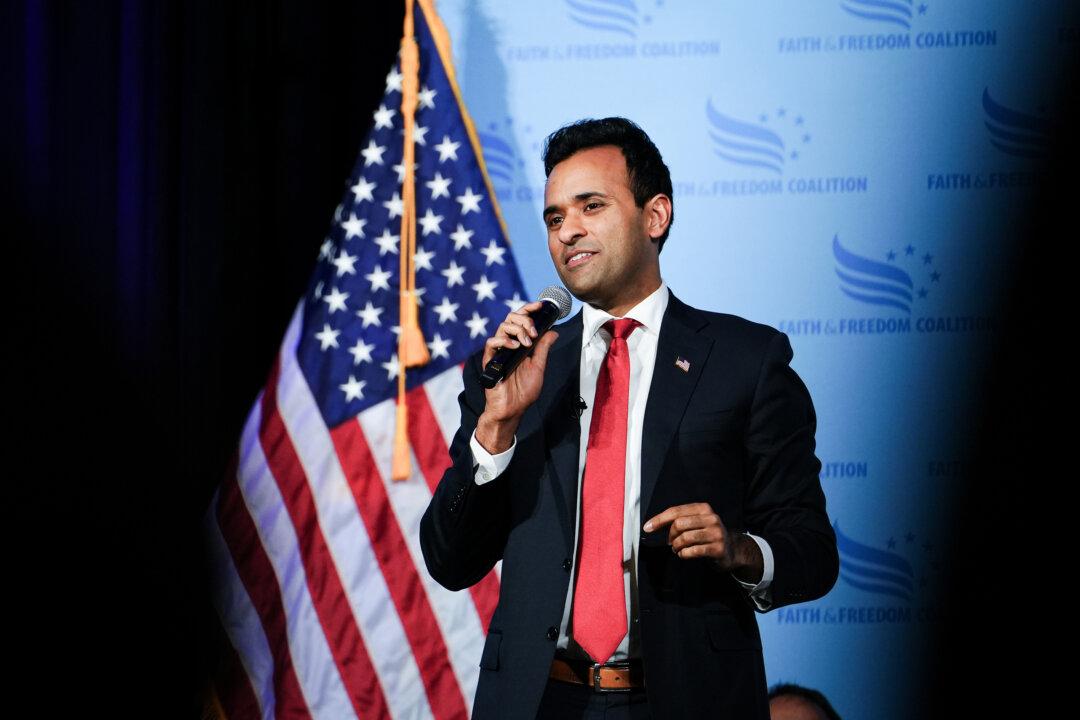Republican presidential primary candidate Vivek Ramaswamy this week addressed land rights as they relate to proposed, carbon capture pipeline projects in Iowa, a local topic that has captured the passionate attention of landowners for two years.
“This is not something I’ve come to in the last few weeks,” Mr. Ramaswamy told a crowd gathered in Des Moines at a Dec. 1 event coordinated by the Free Soil Coalition, a project of Kansas rancher and media personality Trent Loos. “I’m here because this issue affects the entire country,” he said.





